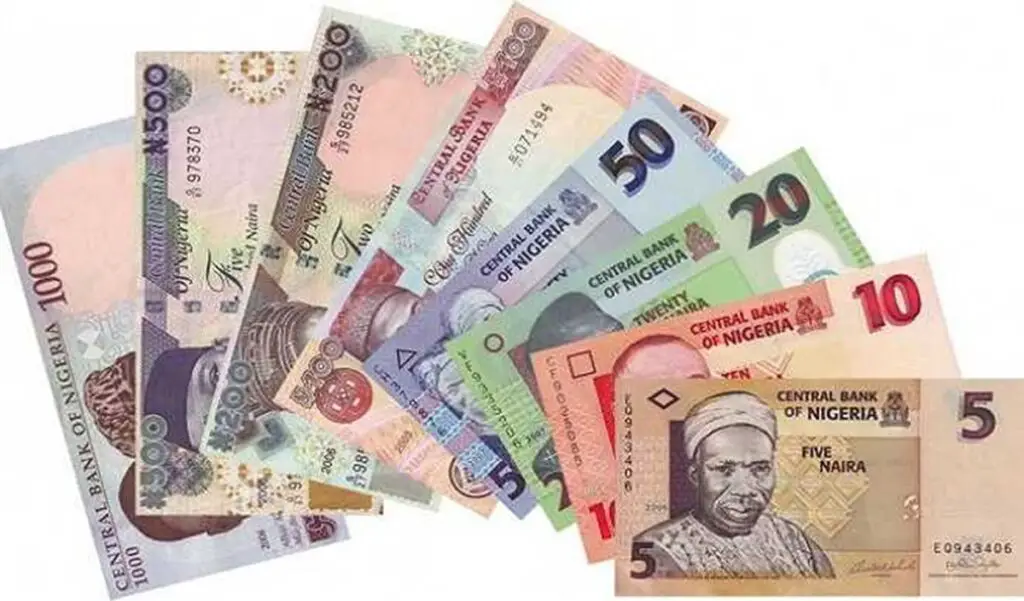- The sudden collapse of the Nigerian Naira versus the US dollar has caused widespread shock and alarm in the banking and investment industries..
- Continued loss in value of the Naira poses huge repercussions for the entire 15-member ECOWAS bloc, not just Nigeria.
- Many ECOWAS countries rely heavily on trade with Nigeria. When the value of the naira drops, the cost of importing products into Nigeria rises, and less money is available to spend on goods from other nations.
The sudden collapse of the Nigerian Naira versus the US dollar has caused widespread shock and alarm in the banking and investment industries. The effects of the currency exchange rate dropping to an all-time low on Nigeria’s economy and regional commerce are significant.
Current exchange rate of the Naira to the Dollar
The FMDQ, where foreign currency is legally sold through the NAFEM, reported an alarmingly low exchange rate of N999 for $1 on October 19, 2023. While this rate itself is cause for alarm, it is only part of the picture.
The illegal currency market, where cryptocurrency is used to trade hands, showed a much more disheartening rate of N1,152 to the dollar in early afternoon trading. This indicates that the collapse of the naira is not only continuing but also quickening.
Parallel trade: effects and consequences
Currency transactions that are not authorised by the central bank take place in the parallel market. The value of the naira against the dollar on this market hit N1,100 on Tuesday. On the other hand, the official market exchanged dollars for N790. There is a growing demand for foreign currencies, particularly the US dollar, which is reflected in the widening difference between these two rates.
Read also: Guinness Nigeria to stop importing Johnnie Walker as Forex sting persists
Effects of the weak Naira on ECOWAS economies
Nigeria’s population and economy make it a major player in the Economic Community of West African States (ECOWAS), a regional organisation made up of fifteen West African countries. The recent depreciation of the Nigerian Naira has repercussions for the entire ECOWAS region, not just Nigeria.
Many ECOWAS countries rely heavily on trade with Nigeria. When the value of the naira drops, the cost of importing products into Nigeria rises, and less money is available to spend on goods from other nations. Businesses in these countries may see a drop in sales and revenue as a result, which might lead to layoffs and a weakening economy.
The naira’s decline in value also threatens to dampen investment in the area. Because of the unpredictability of the Nigerian economy, foreign investors may be wary about expanding their holdings into other nations in West Africa. The ECOWAS region’s development and creativity may be stunted as a result.
Impact of reduced demand in Nigeria on regional economies
As inflation increases, the average Nigerian’s purchasing power decreases. As a result, fewer Nigerians will be able to afford the goods and services offered by their country and its neighbours. Because of this, regional trade may be harmed. Reduced demand in Nigeria could have repercussions for neighbouring countries who rely on Nigeria as a big market for their commodities.
Inflation rates are directly related to the devaluation of the naira. The weakening of the currency drives up the price of imported commodities, which in turn drives up the price of consumer staples. This can have a devastating impact on the economy of a country like Nigeria, which is highly dependent on imports.
The fluctuating value of the currency makes it difficult for companies to make accurate financial projections. Foreign investors may be put off by the prospect of higher risks with lower returns, which in turn dampens economic growth and regional trade prospects.
Finally, the West African region as a whole should be concerned about the tumbling naira. This devaluation may have consequences beyond Nigeria’s borders, dampening regional trade. In order to lessen the problem’s long-term effects, it’s critical that governments and financial institutions act quickly.
Read also: Why West Africa is becoming a hub for conflict minerals
The role of minerals and extraction taxes in developing African economies
Making sure that international corporations in the minerals and extraction industry pay their fair share of taxes is one way African countries can boost their economies. The continent is loaded with useful materials like minerals and petroleum. However, many multinational corporations have used these resources for years without providing fair compensation to the host countries.
Tanzania is a model for other countries to follow in order to maximize the economic value of their natural resources. Tanzania has recently instituted stringent regulations and policies that call for increased taxation and royalties from international mining corporations. In order to increase value creation in Tanzania, the government has mandated that mineral processing take place within the nation prior to export.
As a result of these reforms, Tanzania now has more money to go towards essential areas like healthcare and education. To achieve robust and sustainable economic growth, other African countries should learn from Tanzania’s experience in this area.
To sum up, although difficulties like the devaluation of the Nigerian Naira threaten regional commerce and economies, African countries have resources at their disposal to strengthen their economies. These nations can set themselves up for economic success by demanding that multinational corporations pay their fair share of taxes and by fostering domestic economic growth.

